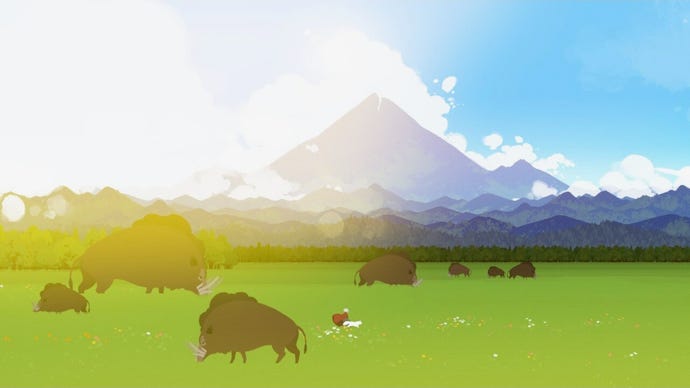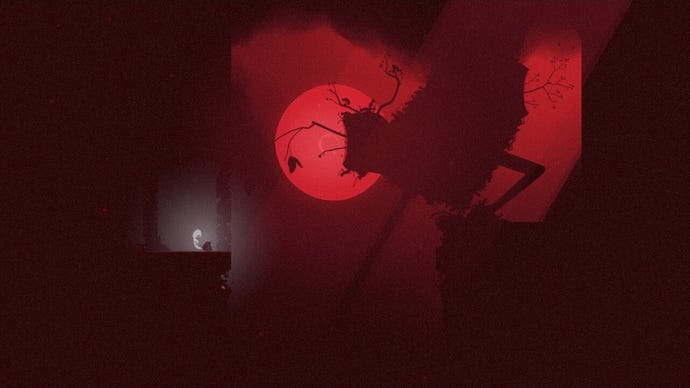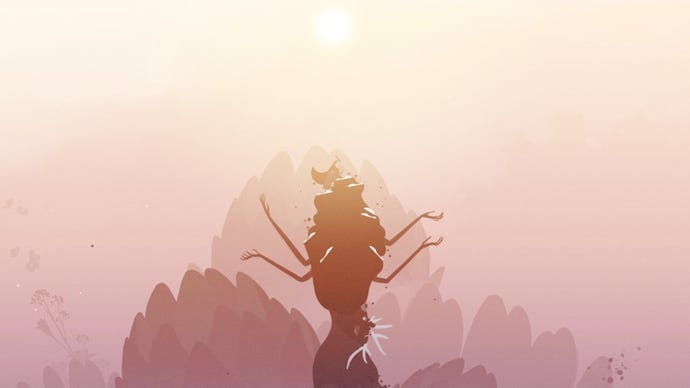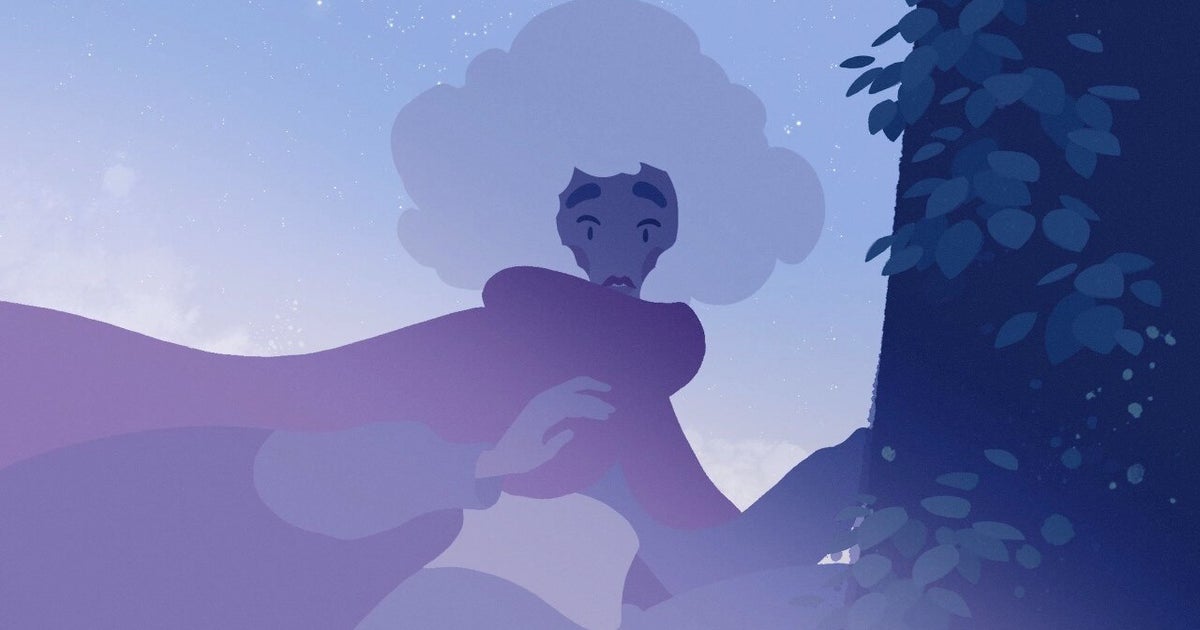Neva is the Sophomore effort from Nomada Studio, who you may remember from their beautiful, dreamy platformer Gris. Neva is not a literal sequel to Gris, but it certainly seems to be one in a spiritual sense, as it, too, is a floaty hand-illustrated platformer fond of metaphor. Neva introduces some drama, with combat and a health system (if not actual stakes because of near-instant restarts), and although neither the platforming nor combat are precise enough to be neat bedfellows, I think we should be willing to forgive most of the mess.
The flavour of the day is environmentalism, an increasingly acute subject for metaphor, and one whose broad notes haven’t really changed since Tim Curry sang Toxic Love in 1992. Neva seems particularly unoriginal in this vein because it’s so obviously influenced by Studio Ghibli. The creeping pot-bellied monsters corrupting the forest are clear cousins of Spirited Away’s No Face, the way they take over giant totemic animals and turn them aggressive is very Princess Mononoke, and while we’re on Mononoke I needs must point out that you play as a bounding, leaping forest warrior woman and her mystical white wolf bestie – the titular Neva. So, you know.

I kind of didn’t mind that, because if you’re going to rip off someone, probably better Ghibli than FernGully, and, like Gris, Neva manages to be achingly beautiful in its own right. You travel through the forest in seasons, each changing the look and feel of the 2D levels (I was particularly fond of the silent white blanket of winter). In each case you also witness the creeping devastation of the blight affecting your home. The black gunky enemies eat away the very core of trees and rock formations, turning the world into a part-fantasy, part sci-fi, zero-G dreamscape. The monsters merge into larger forms, and their secretions become large monochrome flowers in which they bury their faces, destroying the world and being lotus eaters while they do it. I wonder who that could be referring to?
But as the girl traveling with Neva, you’re able to fight back. You come with a dodge-dash and a sword, which you can use to jab the blob monsters that burst out of the ground to swipe at you. A regular legally-distinct-No-Face will go down in three or so hits, but they can also animate the bodies of former forest friends – birds, deer, and so on. This undead creature will then run at you, and you dodge the charges and AOE attacks until the zombie gets tired and falls over, exposing a weak spot. The process is largely the same for mini-bosses and giant seasonal bosses, which carry a source of the blight and must be dispatched before you move to the next part of the year.
As the seasons go by, Neva grows larger and you get more abilities in your arsenal to help with both fighting and platforming. You get a ground pound, you can order Neva to attack at range (which has secondary uses such as activating timed flower platforms), and you can even ride Neva and attack or leap from their back. You can also, of course, pet Neva whenever you like. And with the exception of the petting, this all strings together into complex balletic platforming around floating tree roots and the bodies of animals frozen in flight, as strange shapes pass in the background. Every so often you come across a built structure, all straight lines and angles rising out of the otherwise organic landscape, and often presenting a new and strange platforming challenge.



But the platforming, while dreamy, is perhaps a shade too dreamy for the more advanced challenges that Neva presents over Gris. There are lily-like flowers you can find and light up with a bit of extra platforming, but they didn’t often feel worth the effort it took to master the precise angle of jump required. But there’s little cost to this, whereas dodging at slightly the wrong angle in a boss fight can really come back to bite you in your floaty little bum.
This is compounded by the fact that admirable efforts have been made to make the enemies as beautiful – albeit in a twisted way – as the world itself, and these have been successful enough that it can be quite hard to tell which bit of them you need to avoid. Often the safe part to dodge past amounts to a sliver between hoof and horn that you need to thread like a needle. Neva ends up feeling harder than it sort of has a right to, and not because it’s a Celeste-esque nailbiter by design.
It becomes a bit of a vicious cycle, the gossamer gorgeousness of the game obfuscates the ducking and diving, and the extra tension this adds to the combat makes it harder to relax into an enjoyable flow state. There was a fight against a giant boar in the second stage that nearly did me in, because your life amounts to three hits, total, and several times I turned on invincibility so I could enjoy the world and story more easily.
I am in real danger of sounding ungrateful, because jeopardy was something I wanted more of in Gris. It’s present in Neva, but the nuts and bolts need tightening before it hits an Ori And The Blind Forest, game of the year, orchestral tour sort of level of greatness. That aside – which in fairness is quite a big “that” in an action platformer – I think Neva is a step above Gris. The experience as a whole is engaging and bittersweet enough that I’ll even forgive the ‘it was all a dream’ switcheroo.
This article is based on a review build of the game provided by the publisher.
